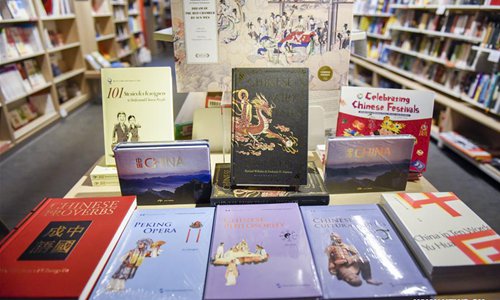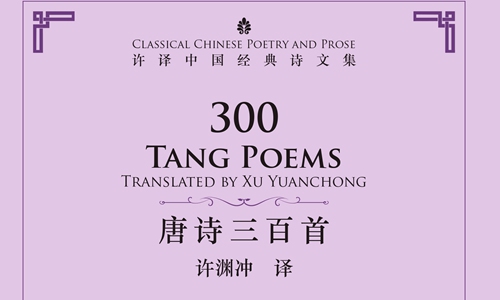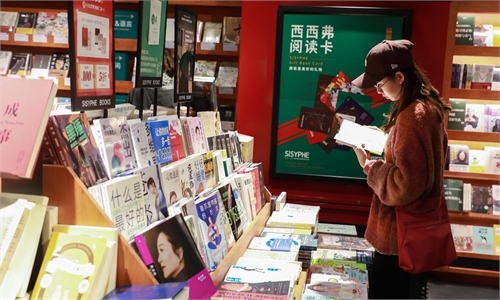ARTS / BOOKS
Chinese internet literature becomes biggest IP source for Chinese cultural works to the world: report

Photo taken on Oct. 22, 2019 shows the "Chinese Bookshelf" at Foyles Bookstore in London, Britain. "Chinese Bookshelf," a project which aims to provide local readers an access to Chinese books and culture, was launched Tuesday here. Located inside Foyles Bookstore at Charing Cross Road, near the British Museum and Chinatown, the "China Bookshelf" introduces more than 100 kinds of books such as literature, folktale, economic publications and political works. (Photo by Stephen Chung/Xinhua)
More than 10,000 Chinese internet literature works have been released overseas as of 2020, becoming the biggest IP source for Chinese cultural works introduced to the world, according to a report on the international communication of Chinese Internet Literature released by the Chinese Writers Association, media reported on Monday.The report noted that the 10,000 works include over 4,000 authorized printed books and more than 3,000 online translation works. Related websites and apps have attracted over 100 million subscribers from all over the world.
According to a report by a Xinhua News Agency think tank, Chinese internet literature has become the biggest IP source of Chinese cultural works and has expanded from Southeast Asia, Northeast Asia and North America to Europe and Africa.
"The success of so many Chinese online literature works overseas is mainly due to China's improved cultural confidence. Most of the works tell about the traditional Chinese culture, which has always been very popular among readers overseas," Zhang Hongbo, director-general of the China Written Works Copyright Society, told the Global Times on Monday.
He also pointed out that due to the global pandemic, more people are choosing to stay indoors, making reading books, including e-books, one of the main sources of entertainment, which has led to a growth in online literature.
Due to this success overseas, some Chinese dramas adopted from these literature works have also become highly popular among audiences overseas.
For example, the drama Legend of Fuyao adapted from the novel of the same name debuted on many mainstream streaming platforms in Europe and North America; The Rise of Phoenixes, adapted from the novel Huang Quan, became the first Chinese ancient costume drama to be purchased by Netflix and is being translated into over a dozen languages; the TV series Joy of Life landed on a variety of media platforms and TV stations in 27 countries and regions on five continents to great reviews.
However, Shi Wenxue, a cultural critic based in Beijing, told the Global Times that only a few dramas adapted from novels have managed to earn good word-of-mouth as many of these adaptations have not respected the "soul" of the original work, thus alienating readers.
He noted that the current hit South Korean drama Squid Game is a good example for Chinese literature and dramas.
"Netflix is very good at mastering the 'appetite' of global audiences and can accurately produce corresponding works, which we could follow in our literature and TV works."
"The core competitiveness of online literature is stories. Online literature will inevitably become one of the important engines for the development of the cultural industry in the future, and I hope we can produce a hit literature work that has the same influence as the war epic The Battle at Lake Changjing in the Chinese film field," said Zhang.




